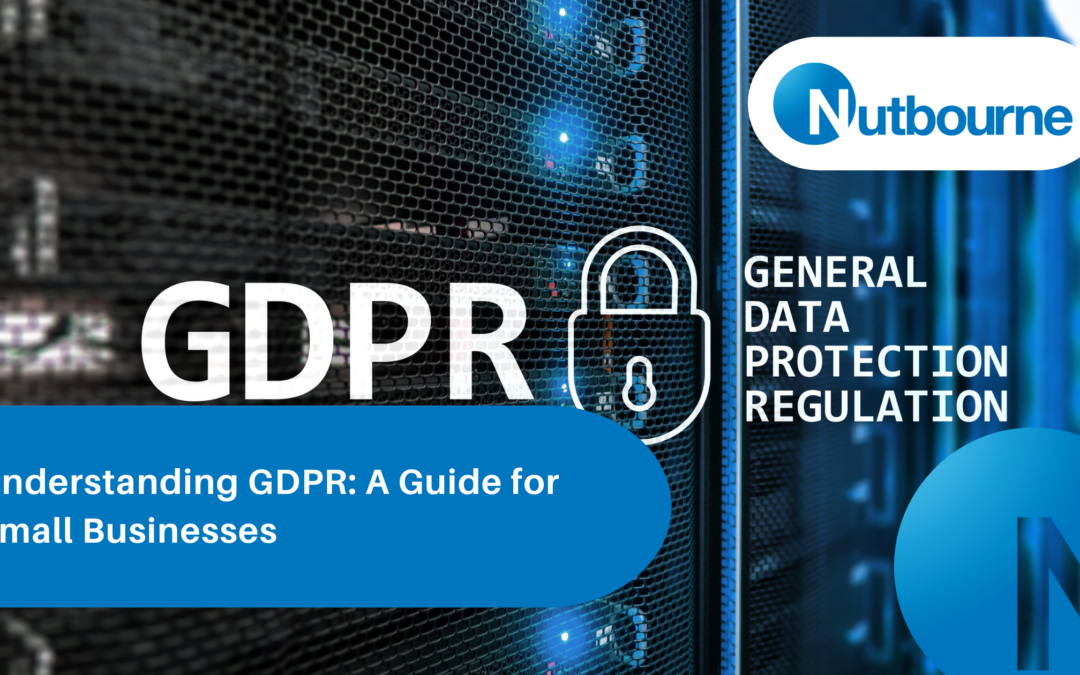GDPR affects businesses of all sizes, but small businesses often face unique challenges in complying. While you have to know and follow GDPR to ensure legal compliance, there are some business benefits too. For one, it builds customer trust, and also protects your business from fines and reputational damage.
What is GDPR?
GDPR is an EU regulation. It protects personal data held by organisations about customers, clients or service users. It applies to any business processing the personal data of EU citizens, no matter where it is located. So although the UK is no longer in the EU, its businesses must adhere to GDPR if they’re processing personal data.
What do I need to know?
You have several obligations under GDPR. These relate to how you handle and process personal data. Your systems, processes and procedures should reflect these obligations.
Lawful Data Processing
- Consent: Get clear consent from people before using their data. Also, make sure they know how it’s used.
- Legitimate Interests: You can process data without consent if it’s necessary for your business’s interests. But it must not override the individual’s rights and freedoms.
Data Subject Rights
- Right to Access: People can ask to see their personal data, so be ready to share this information.
- Right to be forgotten: Individuals can request the deletion of their personal data.
- Right to Data Portability: Enables users to transfer their data to another provider.
Data Protection by Design and by Default
- From the start, integrate data protection into your business processes.
- Cut data collection and storage to that which is necessary for your operations.
Steps to Achieve GDPR Compliance
Compliance isn’t optional. To that end, you have to ensure you manage your data in the right way. If you don’t know how to do this, follow these three steps to get started.
We do, however, advise that you seek expert advice to ensure you are compliant.
Conduct a data audit.
- Identify the types of data you collect and where it’s stored.
- Assess your data processing activities and ensure they follow GDPR requirements.
Put in place data protection policies.
- Develop clear privacy policies outlining how you handle personal data.
- Train employees on these policies. Ensure they understand GDPR principles and requirements.
Ensure secure data handling.
- Put in place technical measures, like encryption and pseudonymisation, to protect personal data.
- Secure both physical and digital data storage systems to prevent unauthorized access.
Manage Data Breaches
For most SMEs, it is a case of when and not if cybercriminals will target your company. As such, prepare for a data breach.
- Develop an incident response plan to handle data breaches. Make sure it is effective.
- Notify the relevant authorities and affected individuals within 72 hours of a breach.
Working with Third-Party Processors
If you work with third-party data processors, they must be GDPR compliant. Sign data processing agreements with them. These have to outline each party’s responsibility for data protection.
GDPR compliance may seem daunting. But, it is vital to protect your business and your customers’ trust. Small businesses can turn GDPR compliance into a strategic edge. By grasping core concepts and acting decisively, they’ll safeguard data effectively. This approach satisfies regulations and builds trust. It also sets smart enterprises apart from the competition, giving them a major advantage.

